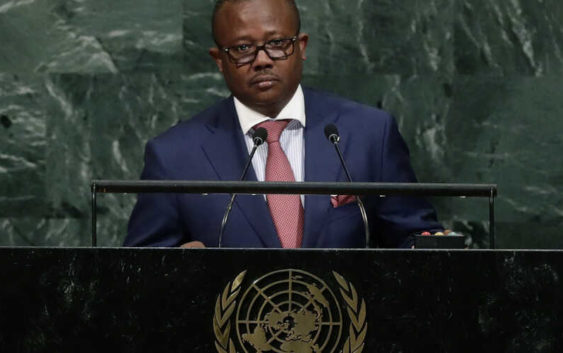EARLY SIGNS OF STABILITY IN GUINEA-BISSAU GIVES HOPE FOR DEVELOPMENT

President-elect Umaro Sissoco Embaló gains parliamentary majority, which further strengthens his presidency. Parliamentarians gathered at “Palácio Colinas de Boé” which houses the National People’s Assembly to debate which political alliances have the right to govern the country.
The debates lasted a little over six hours, thereafter, parliamentarians of Guinea-Bissau offered an almost final victory to the camp of the new president Umaro Sissoco Embaló.
Preceeding this meeting, the president sacked 5 ministers including the minister of defence and the interior. He had also declared himself winner of the presidential run-off elections in December 2019, despite a pending suit by his opposition at the supreme court. However, these bold moves seem to be working in his favour as the heads of state of Economic Community of West African States (ECOWAS) subsequently recognized Embalo as president.
À #Abuja où j'ai été reçu avec tous les honneurs par mon homologue le Président @MBuhari.#Nigeria #GuinéeBissau #Bissau #Cooperationsudsud pic.twitter.com/YIHbHnuKb4
— Umaro Sissoco Embalo (@USEmbalo) March 13, 2020
1ère visite officielle au #Sénégal pays frère et ami.
Je remercie le Président @Macky_Sall pour son accueil chaleureux et fraternel. pic.twitter.com/dWYczqDn9c— Umaro Sissoco Embalo (@USEmbalo) March 10, 2020
However, ECOWAS have also called for constitutional reform to be put to a referendum within six months. Experts have argued that the country’s semi-presidential system contributes to its instability, with frequent clashes between the president and the prime minister.
These frequent clashes are impending the development of critical infrastructures in the country, thereby further widening the infrastructure deficit in Africa.
So, these early signs of stability in the country will likely pave the way for government to focus on infrastructure projects. In these post COVID-19 era, Guinea-Bissau needs to spend on capital projects to avoid a recession in its economy.
Source: Reuters.com | Jeune Afrique | VOA News

